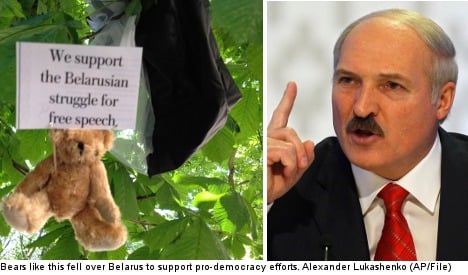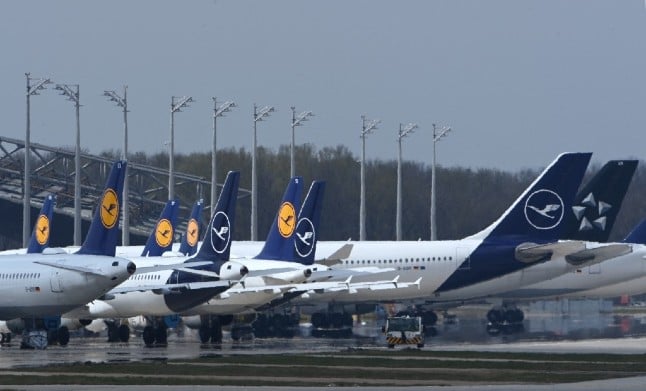Lukashenko’s office did not immediately explain the decision to replace Sergei Martynov with the powerful presidential administration chief Vladimir Makey.
An official biography states that Makey was born in 1958 and has served as an adviser to the president since 2000 after starting his career as a diplomat.
He has headed the presidential administration since 2008 — a post with sweeping powers because of Lukashenko’s full control of both foreign and domestic affairs in the nation of 10 million.
But this influence has also placed Makey on a list of dozens of Belarus officials who have been barred entry into the European Union because of a violent crackdown of post-election protests in December 2010.
It was not immediately clear how Makey intended to carry out his duties representing Belarus at European conferences.
Another incident that angered Europe struck this month when Minsk expelled the ambassador of Sweden and ordered out all its diplomats after a Swedish public relations firm claimed to have conducted a protest with an air-drop of teddy bears carrying messages on human rights.
Analysts meanwhile have questioned Lukashenko’s motives in making the reshuffle and doubted that it would herald an improvement in ties with the West.
“Makey’s appointment cannot possibly radically help relations with Europe because he is on the European no-entry list,” said independent foreign policy analyst Roman Yakovlevsky.
Others said Lukashenko’s complete domination of politics made any reshuffle important only for the various political clans that are vying for influence under the 18-year presidential veteran.
“Anyone who serves in Belarus officialdom is nothing more than a (Lukashenko) pawn,” said political analyst Alexander Klaskovsky.
Belarus had been on a course to improve relations with European powers as it headed into 2010 presidential election that Lukashenko was certain to win against a divided field and had promised to make fair and open.
But election-night violence and the arrest of hundreds of protesters halted the brief diplomatic thaw and left Belarus without billions of dollars in aid that Germany and Poland had promised in case of a more democratic ballot.
Belarus authorities responded by cracking down on human rights organisations even more strongly and occasionally pulling its envoys from European countries in protests over their repeated expressions of concern.
In the Swedish protest incident, Lukashenko initially denied a breach of his ex-Soviet nation’s borders and local rights groups said no actual teddy bears had been discovered at the claimed site.
But the often-unpredictable leader then chose to use the incident to fire the country’s top border control official and the air force commander for failing to protect the border.
The police also briefly jailed a Belarus blogger who posted the Swedish public relation firm’s pictures of the alleged drop, although the blogger was later released.



 Please whitelist us to continue reading.
Please whitelist us to continue reading.
Member comments